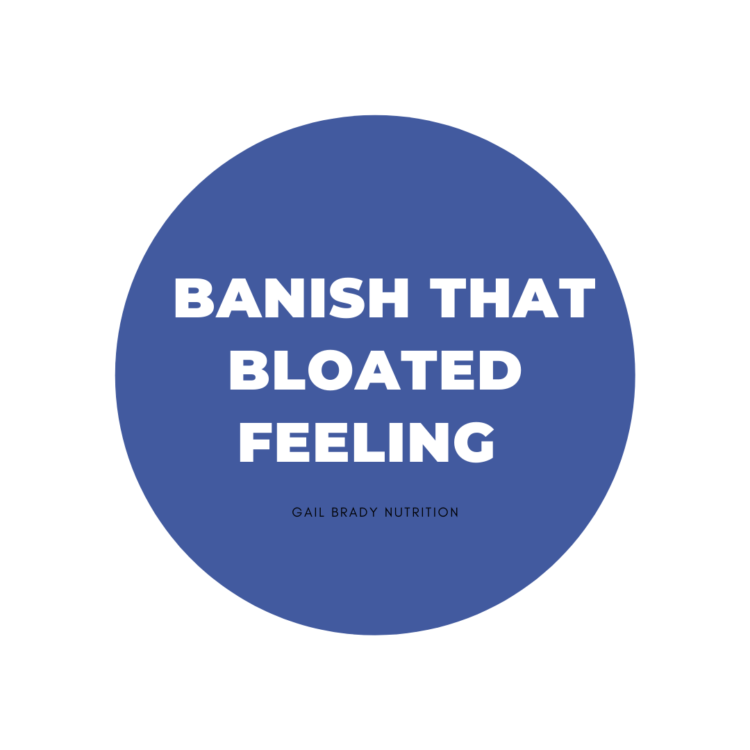Bloating… argh… it’s uncomfortable AND annoying
It can ruin a perfectly good day.
It can make you feel like you have nothing in your wardrobe that fits and all you want to do is stay in and lie on your sofa in your PJs.
Bloating is a common symptom of perimenopause and one that I hear about a lot.
What is bloating
Bloating is often described as a tightness or a feeling of fullness and abdominal distention. It can sometimes be accompanied by pain
There are numerous reasons why bloating can happen, many of which are not specific to peri-menopause.
These can include; stress, imbalances in gut bacteria, low stomach acid, excess salt, smoking, dietary changes such as an increase in fibre, high alcohol consumption, antibiotic use, food intolerances or sensitivities, dehydration, constipation, poor posture, and consuming sugar alcohols including xylitol and sorbitol.
Occasionally bloating could be caused by more serious conditions such as coeliac disease or other chronic health conditions.
It can also be normal to experience bloating following a large meal.
The changes in hormone levels during perimenopause can however make this symptom worse…
Bloating in Peri/menopause
Research has found that your gut health can be affected by declining levels of oestrogen in perimenopause.
Scientific research has shown that when oestrogen levels decline there can be an increase in gut inflammation, as well as an increase in the permeability of the gut wall lining (leaky gut), and a slowing down of gut motility (the contraction of muscles that moves waste along in the intestines).
In addition, one of the roles of oestrogen within the body is to control fluid levels. Fluctuating levels of oestrogen levels can cause your body to retain water and result in bloating.
Menopause and ageing also affect your digestion. Bile production can decline and this can alter your body’s ability to break down dietary fats causing flatulence and bloating.
Here are some tips for managing bloating
- Support your gut health – Get your gut health tested. Testing can help to identify the underlying cause of bloating and other digestive issues.
- Manage your stress levels – High levels of stress can mean that you produce fewer digestive enzymes and less stomach acid and this can make it harder to break down foods. A simple and practical tool to support digestion is to take a few deep breaths before eating.
- Move regularly – this helps to keep the digestive system moving
- Stay hydrated – Drink around 2 litres a day of water a day, more if it is hot or you exercise a lot
- Eat smaller meals or portion sizes – to lessen the load on your digestive system. Chew food thoroughly and eat mindfully ie not at your desk, in front of the TV or your laptop computer and not gulping your food down
- Stop the snacks – avoid snacking unless you are genuinely hungry… give your digestive system time to process and rest
- Avoid carbonated drinks – these will fill your stomach with air/gas
- Pay attention to the foods which may make bloating worse for you. Soft cheeses and beans and pulses are common culprits. For some people, it can also be onions, cabbage and other brassica vegetables, and fermented foods
- Avoid chewing gum – This can cause you to swallow too much air
- Watch your salt intake – for some people too much salt can cause bloating and fluid retention.
- Chewing on fennel seeds or drinking fennel or peppermint tea may be helpful
If you experience persistent bloating that lasts longer than 2 weeks, it is recommended that you consult with your GP or healthcare provider.
If you would like to find out more about personalised nutrition packages click here
You can book a free 30-minute symptom review call here




